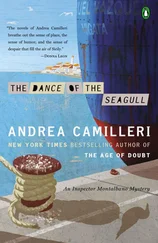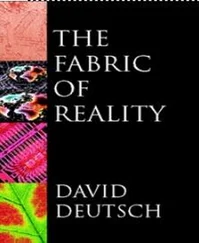Another hypothesis is that he ignored me because of my curved nose. Being Russian bothered him (he had arrived in Chile at the age of five), and being Jewish even more so. He wanted roots. Anti-Semitism raged in Chile like a fire in a straw loft: the Guggenheims had taken over the saltpeter and copper mines, and later the banks, prospering from the workers’ destitution. In the slightest dispute over politics, business, or simply in the street, someone would shout at him, “Shit Jew! Outsider!” His nose was straight, and the prominent curve of mine caused him constant shame. Perhaps this is why I have no memories of going for walks with only him, going into a bakery or cinema alone with him. Whenever we all went out he would walk between my mother and sister, one of them on each arm, and I behind. I would sit in the darkest corner of the restaurant table. and in the circus gallery I would sit far from their box seat, near to the ring. In fact, my family was a triangle — father, mother, daughter — plus an intruder.
It is also possible that Jaime, having lost his father at the age of ten, remained a child due to the trauma, never growing up emotionally just as his penis never grew. No one had ever loved him. Teresa, the ideal mother to whom he aspired once he took over the place of his father, had betrayed him. He could not trust grown women. The proof: after his wedding night with Sara there were no bloodstains on the sheets. He had been duped; the bride was not a virgin. Without a penny in his pockets Jaime left his wife, whom he had gotten pregnant, and went to work as a miner for a nitrate company. A year later, in that stifling place where the salt devoured all color, Sara came to search for him with the keys to a shop in Tocopilla and a baby girl in her arms. Jaime, upon seeing his daughter, saw his own soul. For the first time, he felt loved: those large green eyes were a mirror that improved the depreciated image he had of himself. Raquelita, forever a virgin, only his, no one else’s, could see him as valiant, powerful, handsome, triumphant. Sara, with her dowry in the form of the shop keys, was accepted again although never pardoned: she was a traitor like Teresa, married to him by force but still in love with another, some imbecile whose large penis must surely be his only notable quality. My mother submissively accepted her relegation to second place, following Jashe’s orders to serve and obey her husband no matter how despicable he might be in order to avoid embarrassment among the Jewish community. On their first night back together Jaime possessed her with the same fury with which he desired to punish Teresa, with the same rancor, the same hatred. I was conceived by a sperm thrown like a gob of spit.
Poor Sara, so white skinned, so humiliated, felt like an intruder in life, just like me. Her father had burned himself alive. In Moisésville, the Argentine village where the immigrants arrived believing they had reached the new Palestine but which in fact was an inhospitable terrain, the people shut their doors and windows when they saw that torch of a man bounding along the street yelling for help. Jashe, six months pregnant, saw her blond husband becoming a black skeleton through a peephole in the side door. Three months later she married Moishe (a traveling necktie salesman), gave birth to Sara, and in the following two years to Fanny and Isidoro.
Fanny was born so dark skinned that they called her La Negra. With her kinky hair, large lower lip, and ears as big as her father’s she grew up myopic, ungraceful, and conceitedly ugly. She was cunning, drew attention to herself, and was attracted to power. Little by little she brandished the scepter of modesty, allowing a demure appearance, rabbinic morals, and unctuous reverence to preside in the face of gossip. She wore away at what little virility Isidoro had, making him into her bland lackey, and, occupying the center of the family, expelled Sara to the peripheral zone of derision, sarcasm, and criticism. Sara was unusual, an extreme case; pale as a corpse, she did not know how to handle herself, could not avoid attracting attention, projected an air of embarrassment, and was doomed to end up unhappy. The proof: while Fanny married her first cousin to prevent outsiders from entering the family, Sara fell in love with a communist, a pauper, an assimilated man who was practically a goy.
My mother, accustomed to having to fight to gain her mother’s affection since childhood (and always losing the battle) identified Raquel with Fanny, Jaime with Jashe, and became enmeshed in a triangular relationship in which jealousy took the place of love. She delayed her daughter’s maturation as long as possible. She forced Raquel to keep her hair cut above her neck until age thirteen and forbade her to wear necklaces, earrings, rings, brooches, nail polish, lipstick, or fine lingerie. One day, hypocritically aided by Jaime, Raquel proclaimed her rebellion by appearing with a short skirt, a daring neckline, silk stockings, red lipstick, and false eyelashes. Sara, mad with rage, threw a hot iron at her head. Luckily, Raquel dodged it, only losing a piece of an earlobe. Seeing the blood flow, Jaime punched my mother in the eye. She collapsed, writhing like an epileptic, screaming for her mother.
Thus began a new era that I observed as if from a great distance, from another planet: Raquel’s beauty blossomed while Sara shut herself away in deep silence, Jaime became very accepting of my sister’s caprices, and she never spoke a word to me, looking through me as if I were invisible. All I was allowed to have was a suit, a pair of shoes, three shirts, three pairs of underpants, four pairs of socks, and a wool vest. My sister accumulated a wardrobe with an impressive array of dresses, dozens of boots, and drawers full of all kinds of clothing. Her hair, rendered lustrous by imported shampoo, grew to her waist. In full makeup she was as beautiful as the Hollywood actresses on whom she modeled herself, and Jaime could hardly hide his lustful glances. When passing by her in the narrow corridor between the counters in the shop, he would repeatedly brush against her breasts or buttocks as if by accident. Raquel would protest, furious. Sara would blush. Drawn to her beauty, young boys began besieging her with telephone calls when she was fourteen. Jaime’s delusional jealousy also began at this time. He prohibited her from talking on the telephone (and changed the number), from going to parties, and from having friends. Under the strictest secrecy he tasked me with watching her when she left school, following her when she went shopping, and spying on her at all times. Eager for attention, I became a dogged detective. Raquel, condemned to solitude, could only shut herself in her room — the largest room in our apartment — and read women’s magazines amidst her white furniture, which was crackle-painted in the style of some former king of France, or play Chopin on her baby grand piano, also white crackle-painted. Jaime had put her in a gilded cage. Swarms of boys would wait for the girls to come out each day at the school, so my father decided to enroll Raquel in a private five-day boarding school. The students ate and slept there during the week then were released to go home, loaded with assignments for Friday, Saturday, and Sunday. This made my father feel secure that no one would steal his beloved daughter away.
He was wrong. The Gross family, who were Jewish, had dedicated themselves to the business of education since 1915. Isaac, the father, a depressive and suicidal history teacher, was replaced by his eldest son, Samuel, who had been crippled by polio; English classes were taught by Esther, Isaac’s widow, who had been lame since birth; the two sisters, Berta and Paulina, hugely obese and also lame due to bone problems, taught the gymnastics and embroidery classes. The only one who could walk normally was the other son, Saúl, a mathematics teacher, half bald, obsessively organized, forty-five years old. Raquel, who had just turned fifteen, perhaps to liberate herself from her father’s rule, declared that she was in love with Saúl Gross, who was prepared to ask for her hand in marriage. What’s more, Raquel revealed that she was pregnant. Sara, to alleviate the scandal — a scandal that would be the death of her mother — insisted that the wedding should take place as soon as possible. Jaime, flabbergasted, agreed to accept him as his future son-in-law.
Читать дальше












